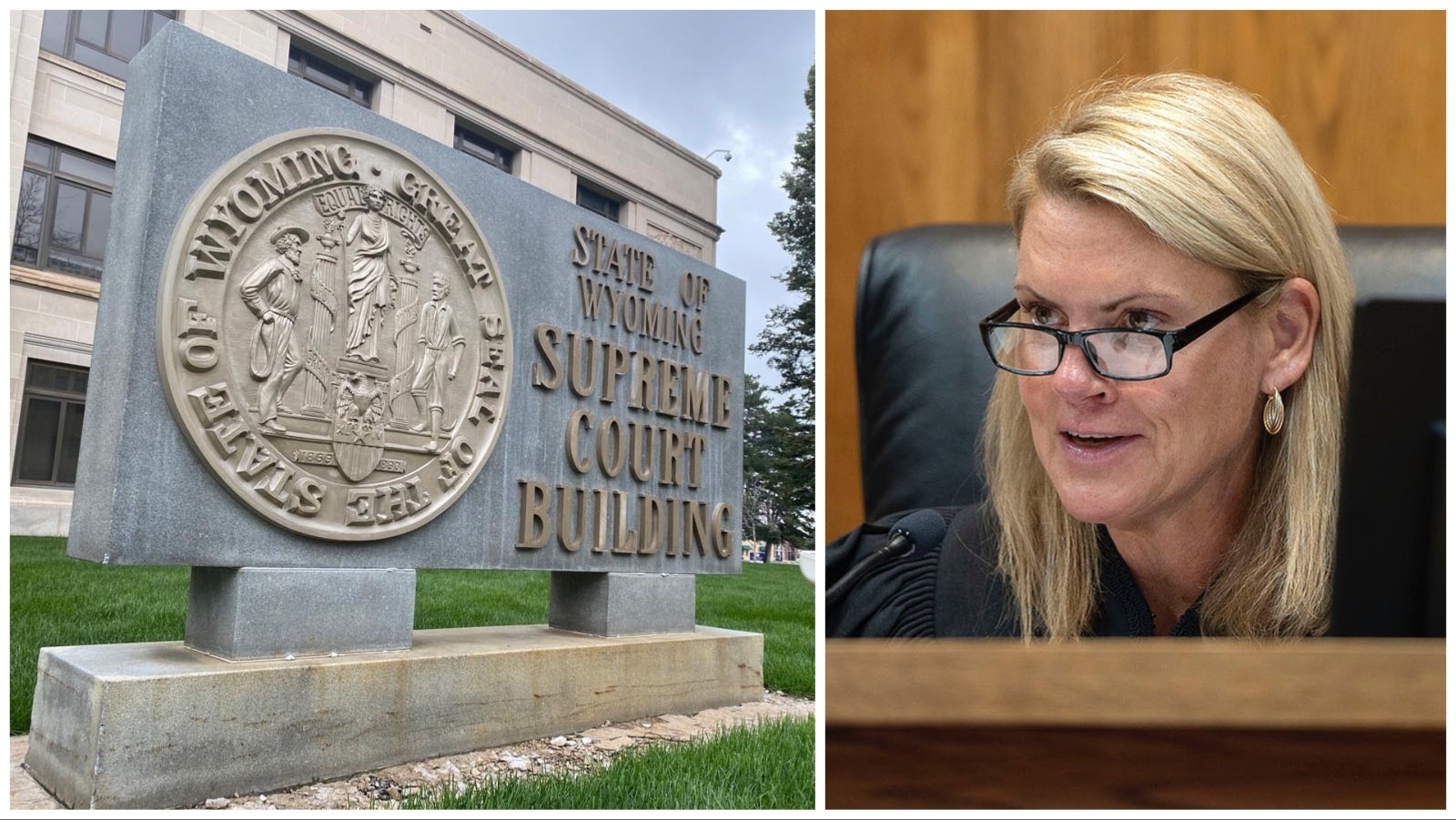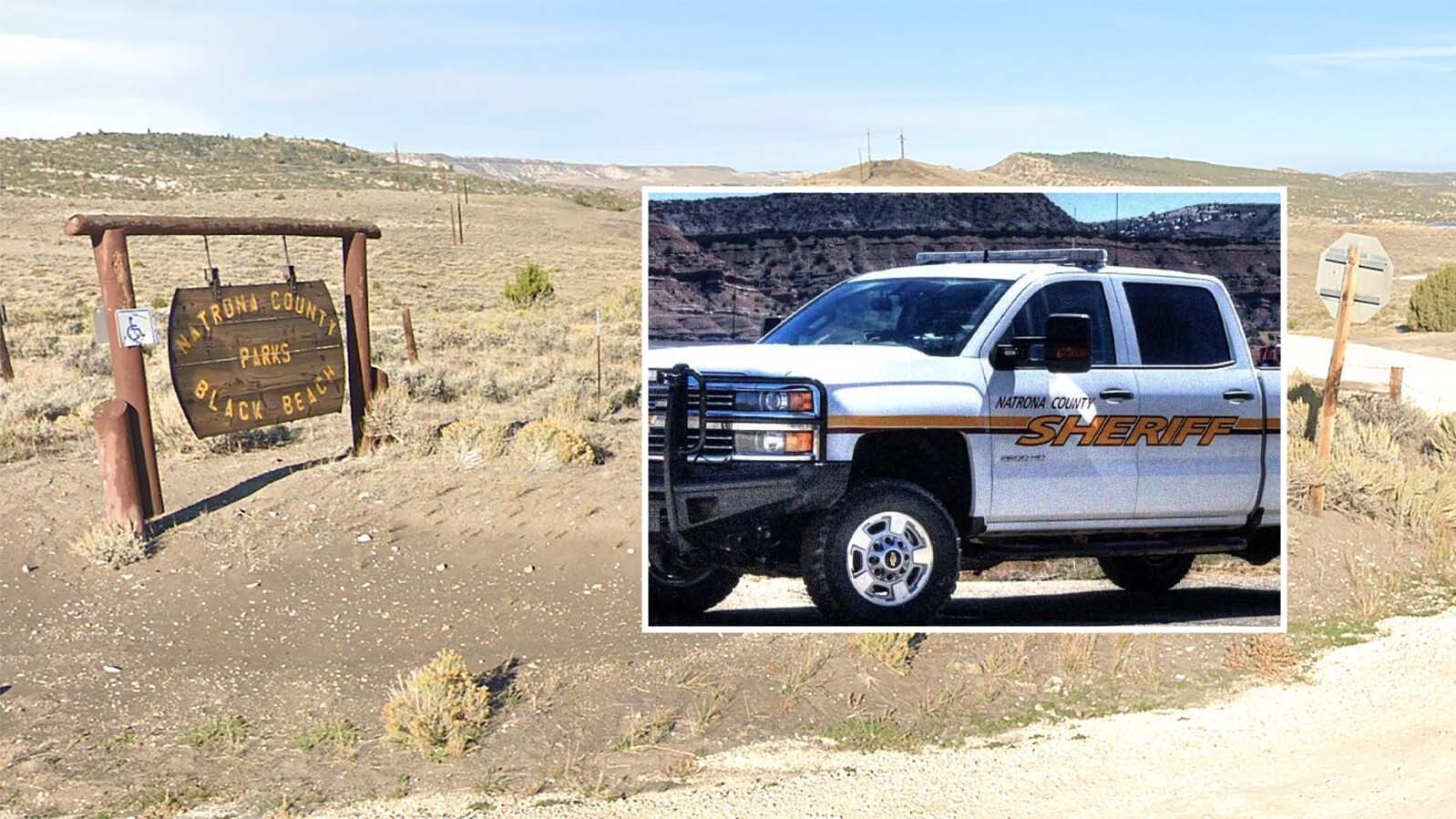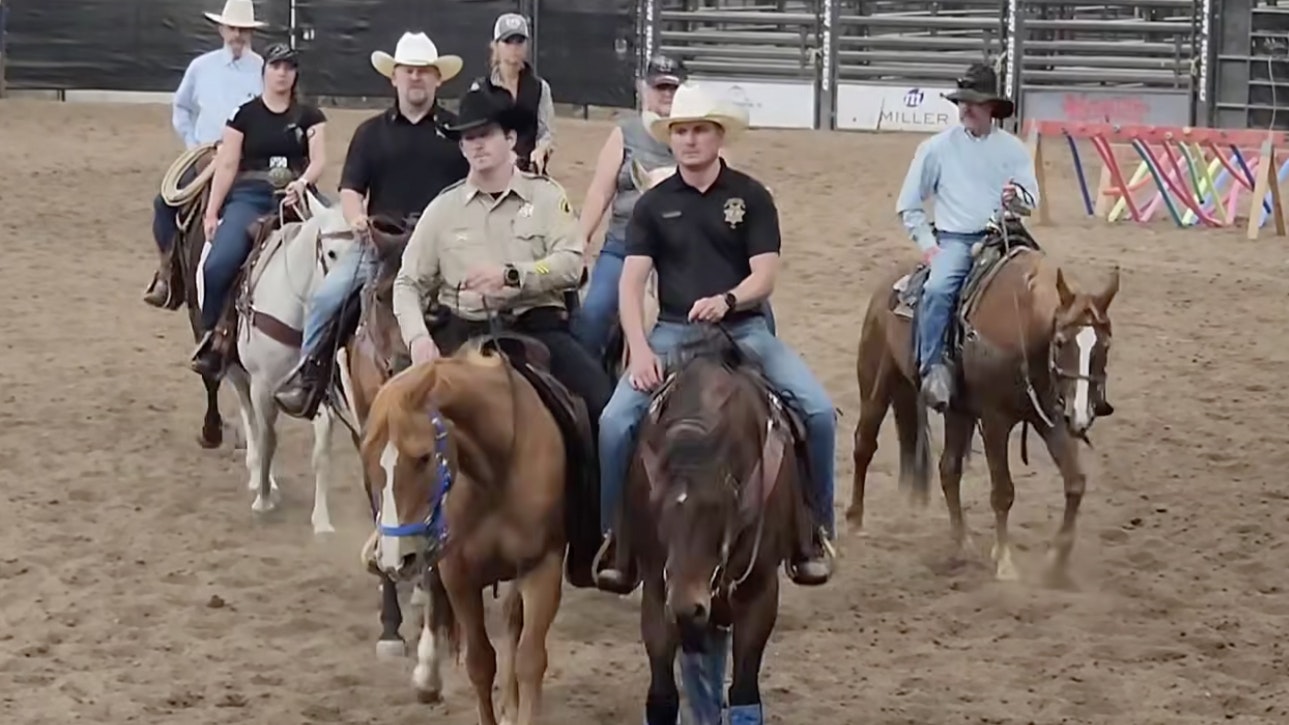The Wyoming Supreme Court on Friday denied a petition by two state lawmakers and a pro-life group to intervene in a lawsuit challenging the state’s two abortion bans.
Pro-life group Right To Life Wyoming and Republican state Reps. Chip Neiman and Rachel Rodriguez-Williams do not have significant, protectable legal interests in the lawsuit’s issues to justify their joining the case, and the state Attorney General’s office is already representing the pro-life argument, says the high court’s order penned by Chief Justice Kate Fox.
Fox’s opinion upholds an earlier ruling by Teton County District Court Judge Melissa Owens, who also denied the group and the legislators a chance to intervene in Johnson v. Wyoming.
Filed in March 2023, the lawsuit is a pro-choice coalition’s attempt to overturn Wyoming’s abortion bans. Owens also blocked both bans from being enforced while the case is ongoing. One of the bans outlaws nearly all abortions, with exemptions for pregnancies conceived through rape and incest; and the other bans the marketing and transfer of chemicals to cause abortions.
If allowed to go into effect, the bans could punish doctors for causing abortions, but not the pregnant women undergoing them.
"While we are disappointed in the court's decision, we are proud to continue our pro-life work in the Legislature and in our everyday lives," Rodriguez-Williams and Neiman told Cowboy State Daily via a joint statement Friday. "I pray that the courts will uphold Wyoming's pro-life law, which will save lives and protect women's health. No one can deny that life is a human right."
No Right To Intervene
The first intervention mechanism the Wyoming Supreme Court studied is intervention of right: the idea that parties can join a lawsuit if they have protectible interests in its outcome, if the outcome could impair their exercise of that interest, if no one in the lawsuit is adequately protecting those interests, and if their application to intervene is timely.
Right To Life Wyoming (RTLW) and the lawmakers did apply for intervention in a timely manner, but they didn’t satisfy the other legal criteria to join the suit, Owens had ruled.
The high court agrees.
Advocacy Not Enough
Fox’s opinion breaks down some of the cases the pro-lifers cited as evidence that their advocacy, time and investment in the pro-life cause formulate a protectible interest in the case’s outcome.
For example, the 10th Circuit case Coalition of Arizona v. Department of the Interior focused on whether the Mexican Spotted Owl should be protected under the Endangered Species Act.
Dr. Robin Silver, a wildlife photographer, amateur biologist and naturalist asked to intervene in that lawsuit to protect his interest in the owl. The 10th Circuit Court of Appeals decided Silver should be able to intervene, because the Endangered Species Act conveyed a legal right, essentially, for Silver to enjoy the owl.
Right to Life Wyoming did not point to a law conferring a similar right with respect to the abortion issue, says the opinion.
Also, the opinion adds, RTLW won’t be regulated by the abortion bans.
“Once the abortion laws challenged in this case were enacted, the responsibility for enforcing and defending the laws shifted to the government,” says the opinion. “At that point, RTLW’s advocacy for the laws and its interest in the policy underlying them became no different from or greater than that of the public at large.”
This Branch Makes Laws
The high court made the same conclusion regarding Neiman and Rodriguez-Williams’ bid to intervene.
It also rebutted the lawmakers’ argument that one of their interests in the case is protecting the Legislature’s authority to enact laws governing abortion and to protect the health and general welfare of the people.
The Legislature can still regulate health care and abortion, but will have to stay within the confines of the Wyoming Constitution as interpreted by the judicial branch, says the opinion.
It’s a statement loaded with portent and potential for both sides of this dispute: Owens is still contemplating whether the Wyoming Constitution’s promise of health-care autonomy confers a right to abortion.
She also may have to decide whether a limit on that promise — that the Legislature can regulate health-care autonomy to preserve the general welfare of Wyoming — preserves lawmakers’ ability to ban abortion.
The Wyoming Supreme Court did not make that decision for her.
“Interpreting the constitution is exclusively the province of the courts and does not impinge on the Legislature’s authority to vote on legislation,” the opinion says.
Lastly, the high court rejected the lawmakers’ petition because the abortion bans don’t specify that they can intervene in the legal challenges the bans spark.
An earlier draft of the criminal abortion ban did contain an intervention mechanism, but that language didn’t survive the legislative process.
Court Says Too Messy
Even when parties don’t have a right to intervene under the set legal criteria, they can ask for permissive intervention, a more discretionary entrance to a case allowed if their interests align with the case issues and their intervention won’t bog down the case with delays and repeat arguments.
Owens had denied permissive intervention too, saying letting the petitioners into the case would politicize and complicate it — and the Wyoming Attorney General’s office already represents their interests adequately.
The Wyoming Supreme Court upheld Owens’ decision.
Evidence Arena
RTLW and the lawmakers disputed the way the Attorney General’s office, via deputy attorney Jay Jerde, is defending the state’s abortion bans.
Jerde has argued that whether abortion is health care, and whether abortion is constitutional, are legal issues Owens should consider to produce a ruling.
The proposed intervenors and the pro-choice plaintiffs both have disagreed, saying they’d like to show evidence demonstrating the validity of their arguments in a hearing or trial.
That puts the proposed intervenors at odds with the AG’s office on legal strategies, but it doesn’t mean the AG’s office is doing a poor job defending the bans, the high court ruled.
The opinion notes that the AG’s office filed a nearly 100-page opposition to the plaintiffs’ request that the laws be blocked immediately as they went into effect.
The state and the proposed intervenors “share this same goal, (and) we presume the State Defendants’ representation is adequate,” the order adds.
Would Be A Rumble
The state Supreme Court also agreed with Owens that letting the intervenors into the case would bog it down.
“Intervention would risk duplicative and cumulative argument, which would delay the matter to the detriment of the parties,” the order says.
Before Owens’ court, Secretary of State Chuck Gray also had asked to intervene in the case, and Owens denied his petition along with the others.
But when Rodriguez-Williams, Neiman and Right To Life Wyoming appealed to the state Supreme Court, Gray decided it was best not to join the appeal.
Clair McFarland can be reached at clair@cowboystatedaily.com.





